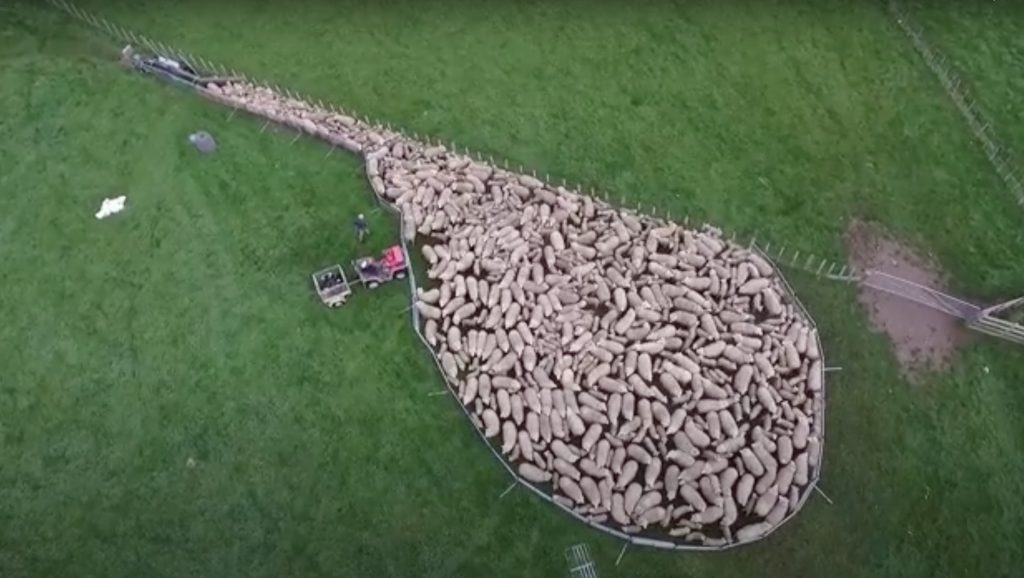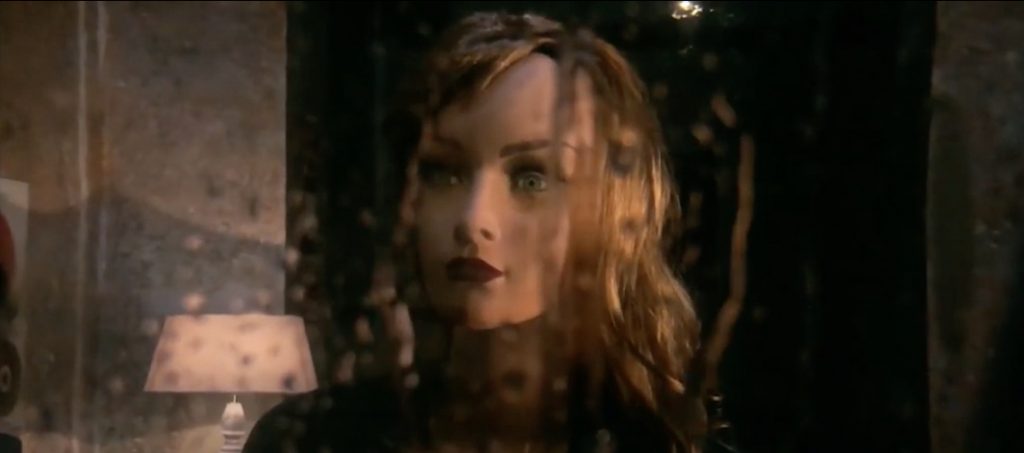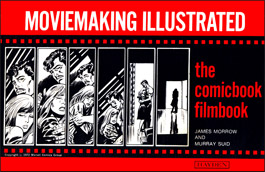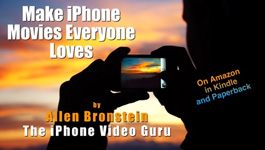Dubbing is often used to improve the clarity of dialogue, for example, when a noisy environment interferes with what the performers are saying. . This technique might be labeled “functional dubbing.” But filmmakers have long understood that dialogue replacement has great comedic potential. You’ll see–and hear—a wonderful example of “creative dubbing” in “Felix,” a prize-winning short movie directed by Beck Williams. An interview with the talented first-time director follows the movie.
Interview with Beck Williams
MobileMovieMaking: How did you develop your filmmaking skills?
Williams: I’ve been on many sets as an actor and have helped out crew-wise on a number of projects, but in terms of my own filmmaking, I am still rather new to the game. I have learned mostly by trial and error, though I have done a fair share of study online.
MobileMovieMaking: How did you come up with the idea for “Felix”?
Williams: I really wanted to create something out of my limited resources. It became a fun and exciting experiment for me to develop a project in which I didn’t really need a budget or crew. It can be very challenging scheduling a group of people when no budget is involved so I started thinking: “What can I do myself? What if I were to write, direct, shoot, etc. on my own?” Of course I would need to rely on actors, and gratefully I knew some very dependable and talented folks. Within this contained circumstance, the story developed. Sound for me is the trickiest element. This led me to the idea of the lead character voicing everyone’s dialogue and taking us on a tour of his memory.
MobileMovieMaking: How did you plan the production?
Williams: I love writing, so I started with a detailed script. I then made notes and color coded the script, but I didn’t make a shotlist or storyboard. I had the benefit of shooting it myself, so all the shots and ideas could live in my head! I was rarely married to any shots because I knew I would have to adjust, especially filming guerrilla style much of the time. Being flexible was the biggest factor in jumping in to this.
MobileMovieMaking: Did this involve improvisation by the actors?
Williams: That came in through action more than dialogue, but my actors did some truly wonderful things. I think it’s always important to give them that freedom, even if just for some of the takes, because they are living it, they are instinctual; beautiful things happen.
MobileMovieMaking: Why did you decide to shoot “Felix” with an iPhone XR device rather than a traditional camera?
Williams: The accessibility. It’s amazing what the phone plus the FiLMiC Pro app can do. The learning curve compared to a traditional camera was pretty intuitive for me. I also found that filming in public was so easy! Hardly any equipment to lug around, and I didn’t catch a lot of attention. It made shooting anywhere so manageable.
MobileMovieMaking: Your cast is marvelous.
Williams: As an actor myself, I am fortunate to know great actors (and dependable I might add). I met Ian Leer, who plays the lead, in an acting class and we began doing creative projects together. I had him in mind while writing the script. Other cast members are friends from college. My sister plays Sarah, opposite Ian.
MobileMovieMaking: Could you talk about your approach to directing?
Williams: I was lucky to have a great cast that could run with it. It was a challenge because I was shooting at the same time as directing, so I had to split focus between the actors and the technical side. I find it essential to allow actors freedom, and to make them feel comfortable because they are opening themselves up to be vulnerable. You have to do what you can do create that space for them. I give some minimal technical direction, and let them do whatever feels right first. I start by being hands-off and then talk more with them as we continue. I never want to stifle intuition so I try to think of how best to support them. One moment that stands out is Ian’s performance during the “realization” in the tunnel at the end of the film. It was one long take where Ian followed his intuitionI was very moved while we were filming this.
MobileMovieMaking: your film is filled with so many interesting L.A. places.
Williams: I had many of the locations in mind while writing. I love using the metro. I don’t know why, but it’s just a favorite of mine. One funny memory– we filmed an exterior shot of a building (I won’t mention which) and a guy came out and said we weren’t allowed to be there “taking pictures,” so we were polite and left. He didn’t know this, but we already had the shot. It’s in the film. Oh, the ever-charming guerrilla filmmaking.
MobileMovieMaking: How long did the shoot take?
Williams: It took about three weeks. Luckily we didn’t encounter a lot of problems. I knew we would have to be flexible and figure things out on the fly. One issue was having to reshoot some of the metro shots, because I didn’t choose the best ISO settings and focus was off. It can be a challenge at times working with a small monitor.
MobileMovieMaking: What about your post production?
Williams: I had a lot of fun editing the film! It’s thrilling to see it piece together. I used Adobe Premiere and had a friend help me with some effects in After Effects. I had to learn color correction and grading The challenge was that I didn’t shoot in log. It was my first time editing something like this on Premiere, so there was a learning curve.
MobileMovieMaking: What motivated you to use creative dubbing—having your protagonist perform all the dialogue?
Williams: I wanted to film without on-set sound. I started thinking – what’s a story that this would serve? I loved the idea of an unreliable narrator taking us through his memories, changing them as he told them to us. It became the basis for the rest of the story.
MobileMovieMaking: The original score is delightful, and we notice you gave credit to the clarinetist.
Williams: I am so fortunate to know Mr. Ben Young, a terrific composer and a wonderful human being. Chloe is a very talented clarinetist who has worked with Ben before, and they made an excellent team. The music was a big undertaking because the film relied heavily on it, and these two pulled off. Ben and I met up several times before and during his process. It’s amazing when a composer can make sense of what a director has in mind, especially when said director doesn’t have a great vocabulary for music composition. We became friends working on this project, and I adore him.
MobileMovieMaking: How has the film been received?
Williams: I’m grateful to say that “Felix” has won Best Fiction at both the Dublin Smartphone Film Festival and the Mobile Motion Film Festival in 2020.
MobileMovieMaking: With that kind of success, what advice would you give to someone just starting out as a mobile moviemaker?
Williams: I would say have fun playing. Experiment and learn by trial if you can. See what stories and inspiration your “limitations” can create. No crew? No budget? Limited resources? Limits can actually help you find ideas and shape your stories. We have tools now that used to be inaccessible as well. All you really need is your phone. The story is most important, so serve that most. For mobile filmmaking there are apps out there like FiLMiC Pro that can make all the difference in quality and getting the desired look. A lot of people won’t believe you shot on your phone.
# # #
You can learn more about Beck Williams at Instagram and Twitter.
The editors of MobileMovieMaking have chosen “Felix” as the Mobile Movie of the Week.



 Previous post
Previous post
 Next post
Next post





